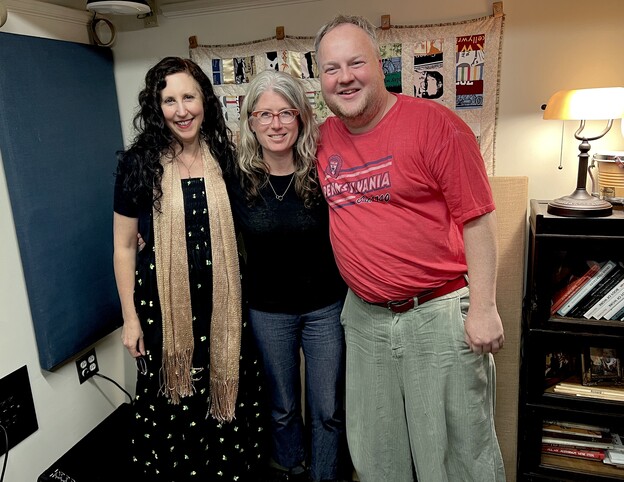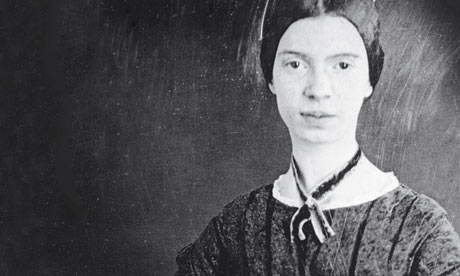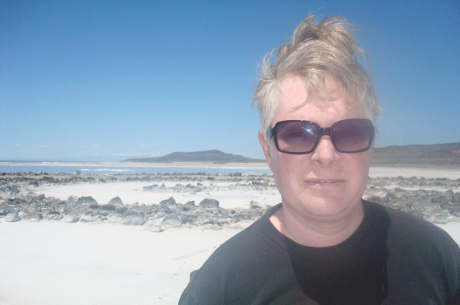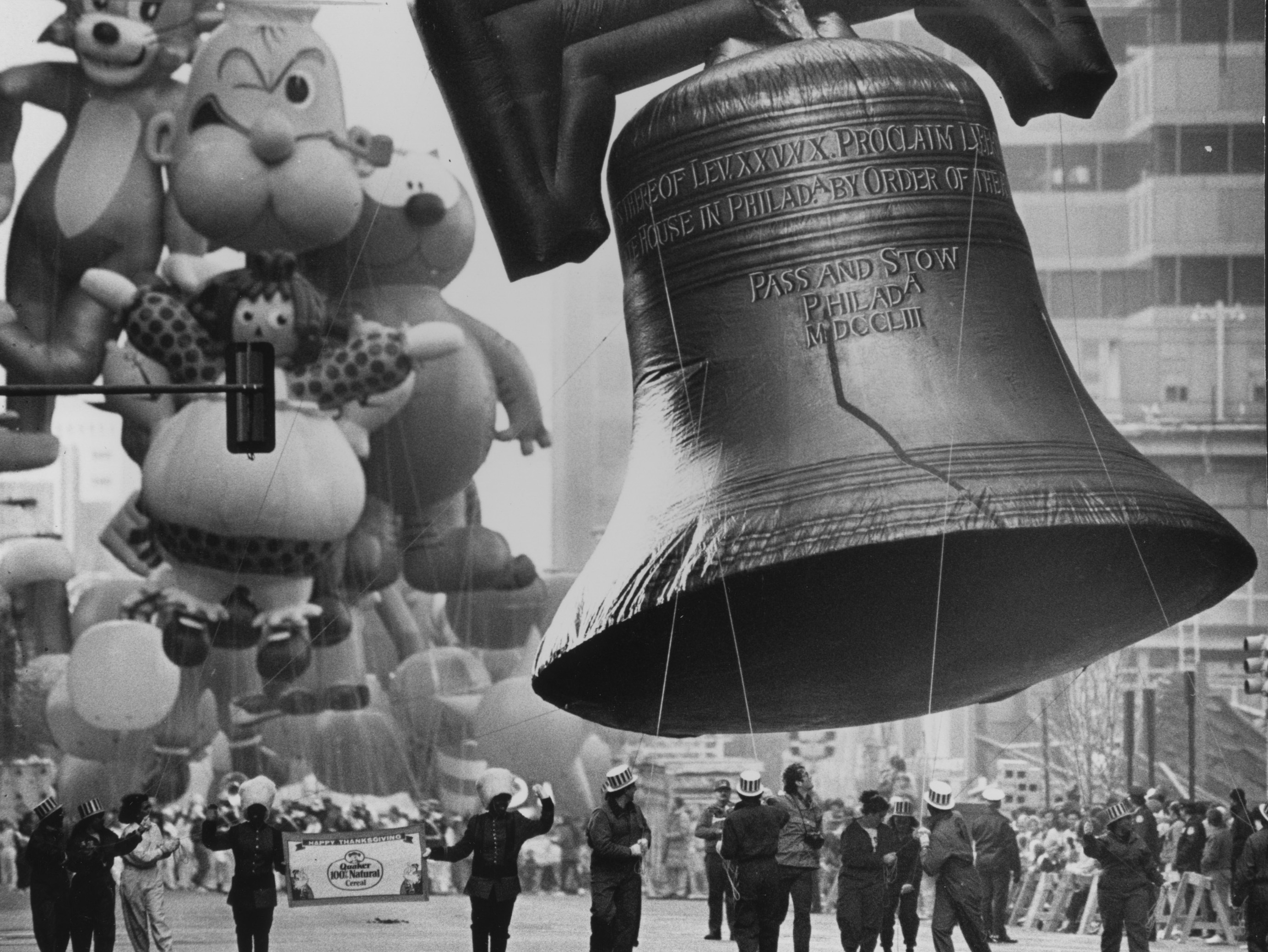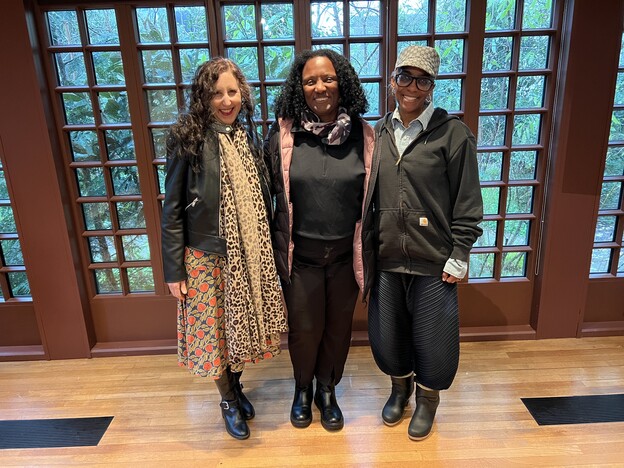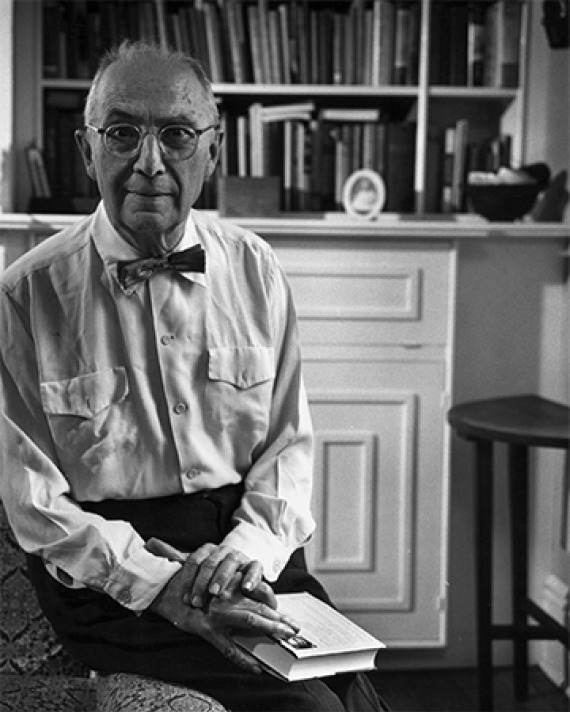Featured resources
From "Down To Write You This Poem Sat" at the Oakville Gallery
- Charles Bernstein, "Phone Poem" (2011) (1:30): MP3
- Caroline Bergvall, "Love song: 'The Not Tale (funeral)' from Shorter Caucer Tales (2006): MP3
- Christian Bôk, excerpt from Eunoia, from Chapter "I" for Dick Higgins (2009) (1:38): MP3
- Tonya Foster, Nocturne II (0:40) (2010) MP3
- Ted Greenwald, "The Pears are the Pears" (2005) (0:29): MP3
- Susan Howe, Thorow, III (3:13) (1998): MP3
- Tan Lin, "¼ : 1 foot" (2005) (1:16): MP3
- Steve McCaffery, "Cappuccino" (1995) (2:35): MP3
- Tracie Morris, From "Slave Sho to Video aka Black but Beautiful" (2002) (3:40): MP3
- Julie Patton, "Scribbling thru the Times" (2016) (5:12): MP3
- Tom Raworth, "Errory" (c. 1975) (2:08): MP3
- Jerome Rothenberg, from "The First Horse Song of Frank Mitchell: 4-Voice Version" (c. 1975) (3:30): MP3
- Cecilia Vicuna, "When This Language Disappeared" (2009) (1:30): MP3
- Guillaume Apollinaire, "Le Pont Mirabeau" (1913) (1:14):
MP3
- Amiri Baraka, "Black Dada Nihilismus" (1964) (4:02): MP3
- Louise Bennett, "Colonization in Reverse" (1983) (1:09): MP3
- Sterling Brown, "Old Lem " (c. 1950s) (2:06): MP3
- John Clare, "Vowelless Letter" (1849) performed by Charles Bernstein (2:54): MP3
- Velimir Khlebnikov, "Incantation by Laughter" (1910), tr. and performed by Bernstein (:28) MP3
- Harry Partch, from Barstow (part 1), performed by Bernstein (1968) (1:11): MP3
- Leslie Scalapino, "Can’t’ is ‘Night’" (2007) (3:19): MP3
- Kurt Schwitters, "Ur Sonata: Largo" performed by Ernst Scwhitter (1922-1932) ( (3:12): MP3
- Gertrude Stein, If I Told Him: A Completed Portrait of Picasso (1934-35) (3:42): MP3
- William Carlos Willliams, "The Defective Record" (1942) (0:28): MP3
- Hannah Weiner, from Clairvoyant Journal, performed by Weiner, Sharon Mattlin & Rochelle Kraut (2001) (6:12): MP3
Selected by Charles Bernstein (read more about his choices here)
|
Posted 12/25/2024
Filreis further explains the complex lineage of the poem(s) under discussion in his program notes on Jacket2: "One version, titled 'when will my love return from the culture war?,' is six quatrains long. A second, for which we have a recorded performance, is four quatrains; there's a variation on thinking about the second that invites us to call it a sonnet." He continues, "Callie added a version — organized in the quatrains — to their blog on May 1, 2020. On November 19, 2020, Callie read the shorter version of the poem as part of a live-streamed remote (lockdown-era) reading given by eight poets," and this is the source of the performance featured on the show.
You can listen to this latest program, read the texts discussed, and learn more about the show here. PoemTalk is a joint production of PennSound and the Poetry Foundation, aided by the generous support of Nathan and Elizabeth Leight. Browse the full PoemTalk archives, spanning more than two hundred episodes, by clicking here.
Posted 12/23/2024
More frequently known by its opening phrase, "'Twas the night before Christmas ...," "A Visit from St. Nicholas" was first published in Troy, New York's Sentinel on this day in 1823 with no attribution. It became wildly popular, reprinted far and wide, and its author — a professor of literature and divinity at New York City's General Theological Seminary of the Episcopal Church, who initially sought to downplay his connection to the poem — would finally be credited in 1837, with Moore including it in a collection of his verse in 1844. Click here to listen to Richetti's performance of the poem. You can read along on the Poetry Foundation's copy of the poem here. Many more recordings made by Richetti form the backbone of our PennSound Classics page, which is organized by author name. To start browsing, click here.
Posted 12/21/2024

At 4:19 EST this morning we officially made the transition from autumn into winter, and today will be the year's darkest day, with just over nine hours of sunlight. For many of us, this day inevitably brings bittersweet remembrances of the late Bernadette Mayer, whose beloved Midwinter Day celebrates the winter solstice in a wholly unique fashion. While not published until 1982, Mayer famously wrote the book — hailed by Alice Notley as "an epic poem about a daily routine ... sedate, mundane, yet marvelous" — in its entirety while marking the the winter solstice at 100 Main Street in Lennox, Massachusetts on December 22, 1978.
Celebrating Mayer and Midwinter Day on this day is an annual PennSound tradition, dating back to 2014. As Megan Burns notes in her Jacket Magazine essay on the book: "A long held tradition on Midwinter's Day was to let the hearth fire burn all night, literally keeping a light alive through the longest night of winter as a source of both heat and a symbol of inspiration to come out the other side of the long night closer to spring and rebirth. It is fitting that a poem about surviving death and the intimacy of the family would be centered around this particular day that traditionally has focused on both. The hearth is the center of the home where the family gathers, where the food is cooked and where warmth is provided. Metaphorically, the poem Midwinter Day stands in for the hearth gathering the family into its folds, detailing the preparation of food and sleep and taking care of the family's memories and dreams."
Posted 12/20/2024
Begins jokingly proclaiming, "I'll make my Ernie Gehr film," a major preoccupation of my generation in the late 70s/early 80s, & then this very raw other thing proceeds to unfold, raw because I only had enough money (a loan from Abby Child) to do 4 shoots never having done sync & using outdated film stock from Rafik & an unfamiliar, undependable camera & trying to keep everything together & everything going wrong, yet determined to make concrete the ideas I had been abstractly developing over several years with whatever I got back from the lab no matter & so abandoning all caution to open a new area, I decided who could possibly talk better than poets? Edited in Times Square. Fans of Hill's Money (1985) will recognize many familiar techniques at play here, with rapid-fire cuts creating a dense, rhythmic collage of sights and sounds punctuated by pregnant pauses, bursts of noise, and enigmatic, orphaned fragments of speech. It would be a mistake to judge it solely in its relationship to Money, however, since the two films differ radically in scope and spirit: while the latter is an expansive survey of the city and its scenes (including poets, dancers, and musicians), the feel here is much more intimate, between the smaller cast and the more limited visual vocabulary. At the same time it's fascinating to see hallmarks of Hills' style in a raw early state, particularly given the influence of the considerable technical challenges that Hills enumerates above. You can watch Plagiarism by clicking here.
Posted 12/19/2024
Today we celebrate bill bissett, who was appointed as a Member of the Order of Canada by Her Excellency the Right Honourable Mary Simon, Governor General of Canada at a ceremony in Ottawa on December 12th. The citation summed up his achievements thusly: A revered poet, painter and musician, bill bissett is a pre-eminent figure of the 1960s counterculture movement in Canada. His poetry collections, which combine sound and visual elements with printed works, are acclaimed for breaking down artificial barriers between the arts. He is also the esteemed co-founder of the Secret Handshake Gallery in Toronto’s Kensington Market, Canada’s first and only peer-support facility for people with schizophrenia. On PennSound's bill bissett author page you'll find a fascinating assortment of recordings that span the breadth of bissett's career as well as depth of his talents. The most recent recordings include a brief home recording from 2021 and his set from a 2012 launch reading celebration of a new edition of his germinal collection, Rush: what fuckan theory; a study uv language. The earliest is a remarkable relic from 1967: an appearance by bissett and bpNichol on the CBC television program Extension, hosted by Phyllis Webb, during which they perform together and separately, and discuss their work and the contemporary Canadian poetry scene. In between, you'll find readings at the Bowery Poetry Club, the St. Mark's Poetry Project, and the Kootenay School of Writing, along with a 1978 radio appearance and the 1968 album Selections from Awake In The Red Desert. Click here to start exploring.
Posted 12/16/2024
Today we're highlighting Poker Blues a 1991 video collaboration by artist Les Levine and Ted Greenwald, and published by Museum of Mott Art, Inc. (the conceptual museum Levine founded in 1970).
A marvelous fugue constructed from the lexicon of card players, Poker Blues is filmed in a two-camera setup, alternating between perspectives so that Greenwald becomes his own interlocutor, while Levine remains faceless off-screen. The claustrophobic feel is underscored by quick edits and tight close-ups, along with the looped soundtrack of Diana Ross' "I Love You (Call Me)."
We've made video footage of the sixteen-minute film available, along with the isolated audio track. You can experience both by clicking here.
Posted 12/11/2024
We follow up yesterday's birthday greetings by celebrating another legendary poet who a great many of us still miss dearly: Jerry Rothenberg, who would have turned 93 today. Our PennSound author page for Rothenberg, collecting recordings from 1969 to the present, is a wonderful way to interact with the Rothenberg's considerable legacy. There's a comprehensive survey of his own diverse poetic modes, spread across numerous recordings, from album releases via S Press and Optic Nerve's Rockdrill series to myriad readings and even some of his musical collaborations. There are a number of recordings related to his editorial and translation projects, including launch readings celebrating several different volumes in the Poems for the Millennium series and milestone events for Technicians of the Sacred (both its 40th and 50th anniversaries). There are lectures, class recordings, and interviews with Rothenberg, as well as commentaries on his own work, including several PoemTalk episodes. With nearly 300 MP3s alone — counting individual tracks and complete recordings — not to mention videos, it's a fittingly encyclopedic tribute to Rothenberg's influence, as well as a useful resource for all sorts of classroom settings. Listeners will also enjoy Rothenberg's ongoing Jacket2 commentary series, "Poems and Poetics," which we were honored to host. Pick any recording at random and you'll understand instantly why Rothenberg is so universally beloved: for someone who's published output might fill several shelves, he's truly at his best in a live environment. Having worked at PennSound for so long, I've been to a lot of poetry readings and have listened to many more beyond that, and for my money, there's no one as captivating, no voice as powerful, no poet who entertains as well as he moves us and teaches us. I cherish the three times I've seen Jerry read in person — at our own Kelly Writers House in 2008, at Xavier University here in Cincinnati in 2011, and at the University of Michigan in 2013 (all of which are available on PennSound) — and wish that I could have seen him read at least one more time. You can read our PennSound Daily tribute to Rothenberg here, and Amish Trivedi's memories of working with Rothenberg here.
Posted 12/10/2024
Today would have been the 193rd birthday of Emily Dickinson. For many years, a treasure trove of Dickinson materials was scattered throughout our site, but a few years ago we pulled together a proper PennSound author page for the poet, gathering selected resources from throughout our archives.
It should come as no surprise that Susan Howe would be prominent featured, and here you'll find complete talks on the poet from 1984 (from the New York Talk series) and 1990 (from SUNY-Buffalo) in addition to several smaller excerpts from larger talks pertaining to the poet. There's also a link to PoemTalk #32, which discusses Howe's interpretation of Dickinson's "My Life had stood - a Loaded Gun."
Full series of lectures on Dickinson are also available from Robert Duncan and Robert Creeley, both at the New College and dating from 1981 and 1985, respectively. Among other substantial contributions, there's also the 1979 Dickinson Birthday Celebration at the St. Mark's Poetry Project (featuring Jan Heller Levi, Charles Bernstein, Susan Leites, Charles Doria, Virginia Terrace, Barbara Guest, Madeleine Keller and Vicki Hudspith, Armand Schwerner, Karen Edwards, Jackson Mac Low, Maureen Owen, and Howe) and Rae Armantrout's 2000 presentation on Dickinson from "Nine Contemporary Poets Read Themselves Through Modernism."
You'll also find performances of individual Dickinson poems from John Richetti and Jeffery Robinson as well as brief excerpts of radio interviews — with John Ashbery, Guest, and Elizabeth Bishop — pertaining to the poet.
Our hope is that this page, which brings together disparate resources already available in our archives, will be a useful tool for teachers, students, and casual readers, as well as serious scholars. Click here to start exploring.
Posted 12/9/2024
While Chris Funkhouser has been sending us tapes from his incredible archives from over a decade, they are more often than not recordings of other folks and not his own poetics and musical projects. Today we're taking a look at one such rare recording — a 1994 performance from the Lollapalooza festival's stop in Saratoga Springs, NY by Purkinge, a supergroup of sorts in which Funkhouser had taken part. Here's his description of the group's evolution and their triumphant appearance on the sidestage of the eclectic summer festival: In 1992 made the unlikely move from Santa Cruz to Albany to pursue a Ph.D., partially because Katie Yates told me about a fascinating collaborative writing initiative Don Byrd spearheaded there. Too much technical & social back story to tell, but a performance group consisting of Sandy Baldwin, Belle Gironda, Eric Douglas, & I emerged named Purkinge (after brain fibers that conduct an electrical stimulus enabling the heart to contract in a coordinated fashion). Networked writing conducted across a series of computer terminals, sound, & stage were emphasized. We made hundreds of pages of poems, hours of multi-track recordings, played arts venues & theory conferences. Intent on re-defining expressive conventions, we weren't together to be popular or make money; we liked each other & did whatever we wanted given what we had ("being only possible because of gravity"). I was the only musician in the group, but our shows always featured soundtracks with everyone's input. We peaked in so many ways at the Saratoga Raceway stop of the 1994 Lollapalooza festival. People I knew were running a side stage, & various friends traveled show-to-show. I was invited to join & round up local talent. Purkinge worked on a set for a few weeks, mixing a 23 minute soundtrack combining ambient recordings, percussive segments, & language. We made several hundred 10 inch segments of dowels for the crowd. Voices on tape freed us from being bound to microphones, so we moved around a lot. We planned an interactive experience with the audience, & an almost unbelievable thing happened. Gorgeous afternoon: main-stage sets by the Breeders & Boredoms transpired under sunny skies. I wore a skirt, & a random party girl said, "I'm glad you're man enough to wear that." Shortly before Purkinge's show beneath a mini-circus tent on the infield, black clouds roll in & — simultaneous to thunder playing on our soundtrack — an intense thunderstorm hits. Suddenly five- or six-hundred people were in the tent, many of them hopped up, drumsticks in hand, performing. Boisterous & strident, beautiful within the larger event, we lashed folding metal chairs to ourselves, played & crashed into each other, setting a certain tone. As we finished, the rain stopped, then we danced with everyone else to George Clinton (P-Funk All Stars) & Beastie Boys in the mud. Chris has done a wonderful production job here, creating a spacious mix that benefits those listening on headphones in particular, and leaving plenty of room for conversant dynamics to develop between noise, music and the sparring voices. You can hear this track, along with a wide array of readings, performances, interviews and lectures on PennSound's Chris Funkhouser author page.
Posted 12/6/2024
We close out this week by remembering poet, novelist, mathematician, translator, and Oulipo member Jacques Roubaud, who passed away yesterday in Paris on his 92nd birthday.
Roubaud is an encompassing author. He writes through a full spectrum of the "simple" (i.e. his poetry for children) to mind-bogglingly dense pieces underpinned by mathematical concepts incomprehensible to many left-brained creative folks. After all, the title for his first book was a mathematical symbol — graphic and discrete, yet to explain what it means would take more words than I have been allotted.
We're proud to be able to share two videos of Roubaud on his PennSound author page. The earlier of these is a 2012 "Lecture de Poète" filmed by François Sarhan in Paris, wherein Roubaud reads excerpts from his collection, La forme d'une ville change plus vite, hélas, que le coeur des humains: Cent cinquante poèmes, 1991-1998 (Éditions Gallimard, 1999). That's joined by a December 2019 celebration of the poet's then most recent book, Tridents (Éditions Nous, 2019), recorded at Paris' Librairie Texture. Éditions Nous publishers Benoît Casas and Patrizia Atzei were on hand to celebrate this latest book from their press, the sixth in total from Roubaud that they've published. This was also Roubaud's third time reading at the book store. Both of these recordings can be found on our Jacques Roubaud author page. Click here to start watching.
Posted 12/4/2024
Recorded at the Cathedral Church of Saint John the Divine on February 25, 2015, this event — presented in partnership with the Weatherhead East Asia Institute at Columbia University — served as a farewell to Xu Bing's exhibit "Phoenix." Ten poets in total, five from China and five from the US, shared work written in response to Xu's artwork. The roster of readers for the evening consisted of Bei Dao, Ouyang Jianghe, Xi Chuan, Zhai Yongming, Zhou Zan, Charles Bernstein, Mei-Mei Berssenbrugge, Pierre Joris, Afaa Weaver, and Marilyn Nelson (the Cathedral's then-current Poet in Residence). Opening comments were made by The Very Reverend Dr. James A. Kowalski, Dean of the Cathedral, and by event organizer Professor Lydia H. Liu from Columbia University; Xu offered closing remarks.
Posted 12/2/2024
Today we dip into our archives to revisit Lytle Shaw's 2008 lecture, "Olson's Archives: Fieldwork in New American Poetry," delivered at the Kelly Writers House as part of the Theorizing series.
Delivered on October 22nd of that year, "Olson's Archives" would eventually appear as a chapter in Shaw's 2013 book, Fieldworks: From Place to Site in Postwar Poetics (here referenced under its working title, Field Authorities). In the essay Shaw examines "site-specific poetry and art as forms of experimental historiography and ethnography," tracing the shift from "a future-oriented poetics of place" (as seen in Williams and Olson) to a contemporaneously lived aesthetic (he cites Creeley, Baraka and Snyder as examples). In particular, Shaw is "interested in the way that poets who wanted to account for actual empirical places found themselves having to trespass beyond poetry proper to poach some of their authority from other disciplinary fields."
Posted 11/29/2024
Today we explore our author page for beloved proto-modernist misanthrope Charles Baudelaire, which brings together resources related to the poet scattered throughout our archives.
First up, we have Ariana Reines reading and discussing Baudelaire's "My heart laid bare" as part of a 2009 Segue Series Reading at the Bowery Poetry Club. That's followed by Keith Waldrop reading "To the Reader," "The Bad Glazier," "The Dog and the Flask," and "Invitation to the Voyage" at Harvard University in 2009 as part of a launch event for Poems for the Millenium Vol. III. Waldrop returns to read eleven of his translations in a 2006 recording session engineered by Steve Evans.
Charles Bernstein also makes two appearances on the Baudelaire page, first presenting a bilingual reading of "Be Drunken" with Pierre Joris at the aforementioned 2009 Harvard event, and also reading "Venereal Muse," his take on "Muse Venale" at Indiana University of Pennsylvania in 2006. A twenty-seven minute video of Sean Bonney reading Baudelaire in English in London's Abney Park during the winter of 2008 round out our collection, though we've also included a brief bonus clip of Marjorie Perloff discussing Eliot and Baudelaire's concepts of evil, from a 2012 talk on "The Waste Land."
Posted 11/27/2024
With the US celebrating Thanksgiving this week, it's time to revisit a perennial PennSound Daily tradition that started way back in 2010: a mini-mix of poems of thanks and thanksgiving — some old, some new — taken from the PennSound archives. In a classic recording of "Thanksgiving" [ MP3] from the St. Mark's Poetry Project, Joe Brainard wonders "what, if anything Thanksgiving Day really means to me." Emptying his mind of thoughts, he comes up with these free associations: "first is turkey, second is cranberry sauce and third is pilgrims."
"I want to give my thanks to everyone for everything," the late John Giorno tells us in "Thanx 4 Nothing" [ MP3], "and as a token of my appreciation, / I want to offer back to you all my good and bad habits / as magnificent priceless jewels, / wish-fulfilling gems satisfying everything you need and want, / thank you, thank you, thank you, / thanks." The rolicking poem that ensues offers both genuine sensory delights ("may all the chocolate I've ever eaten / come back rushing through your bloodstream / and make you feel happy.") and sarcastic praise ("America, thanks for the neglect, / I did it without you, / let us celebrate poetic justice, / you and I never were, / never tried to do anything, / and never succeeded").
"Can beauty save us?" wonders Maggie Nelson in "Thanksgiving" [ MP3], a standout poem from her marvelous collection, Something Bright, Then Holes, which revels in the holiday's darker edges and simplest truths: "After dinner / I sit the cutest little boy on my knee / and read him a book about the history of cod // absentmindedly explaining overfishing, / the slave trade. People for rum? he asks, / incredulously. Yes, I nod. People for rum."
Yusef Komunyakaa gratefully recounts a number of near-misses in Vietnam — "the tree / between me & a sniper's bullet [...] the dud / hand grenade tossed at my feet / outside Chu Lai" — in "Thanks" [ MP3], from a 1998 reading at the Kelly Writers House.
"I miss everything / all the time, even / what's in front of me," Kate Colby reflects in "Home to Thanksgiving (1867)" [ MP3], ably mimicking the sense of loss that simultaneously haunts and heightens the holiday season for many of us.
Kenneth Irby begins his 1968 poem, "Thanksgiving Day and Lowell's Birthday" [ MP3] with a succinct synopsis of the holiday's meaning: "This is / the day set aside / for public harvest's / gratitude, / giving back of all the energies of devotion /for an instant equal / to the energies gathered / of earth's sustenance given / or what was attended / watching the slow shift of season / knowledge thankful for to have gathered /before the shift — not so slow and more like a / sudden awareness come on too late — / before cold winter." You can read along with Irby at Jacket2, where the poem was published as part of the career-spanning 2014 feature, "On Kenneth Irby."
While many might be familiar with Charles Bernstein's delightfully-thorny "Thank You for Saying Thank You," I'm offering up a recording of his 2015 mutation of that poem, "Thank You for Saying You're Welcome" [ MP3], which inverts the sentiments of the original: "This is a totally / inaccessible poem. / Each word, / phrase & / line / has been de- / signed to puz- / zle you, its / read- / er, & to / test whether / you're intel- / lect- / ual enough — / well-read or dis- / cern- / ing e- / nough — to ful- / ly appreciate th- / is / poem."
Finally, we turn our attention to the suite of poems that concludes Mark Van Doren's Folkways album, Collected and New Poems — "When The World Ends" / "Epitaph" / "Farewell and Thanksgiving" [ MP3] — the last of which offers gratitude to the muse for her constant indulgence.
Posted 11/25/2024
We start off this week on a sad note, bidding farewell to poet, novelist, painter, and anti-apartheid activist Breyten Breytenbach, who passed away yesterday at the age of 85. In early 1960s South Africa, Breytenbach emerged as the leader of the Sestiger movement of young white dissidents that sought to explore the literary potential of Afrikaans while rejecting its colonial associations. As he explained to The New York Times in 1986, "I'd never reject Afrikaans as a language, but I reject it as part of the Afrikaner political identity. I no longer consider myself an Afrikaner." Breytenbach would eventually settle in France, but during a 1975 trip home to provide support to the outlaw African National Congress, he was arrested and sentenced to seven years in prison, requiring the intervention of President François Mitterrand to negotiate his release. We were lucky to play host to Breytenbach in December 2008, when he read at the Writers House as part of the Writers Without Borders series. His seventy-five minute reading includes the titles "A Black City," "Letter to a Butcher from Abroad," "In a Burning Sea," "Goya," and "The Way Back," among others, ending with a long Q&A session. You'll find a segmented recording of that event on PennSound's Breyten Breytenbach author page, along with his 2005 appearance on Leonard Schwartz's program Cross-Cultural Poetics, during which he discussed his essay "The Middle World" and his then latest collection, Lady One: Of Love And Other Poems. Click here to start listening. We send our deepest sympathies to Breytenbach's family and his fans worldwide.
Posted 11/23/2024
Yesterday saw the debut of the newest episode in the PoemTalk Podcast series, which addreses "Chasing Dirt" from Harryette Mullen's latest, 2023's Open Leaves / poems from earth. Host Al Filreis was lucky to be joined for this program by Mullen herself, along with Laynie Brown and Simone White.
This section of Open Leaves — published by London's Black Sunflowers Poetry Press — includes "two epigraphs, a prose-poem paragraph, a mixed media artwork titled Silent Talks by Tiffanie Delune, and a sequence of three-line poems across four pages of four poems each." In his program notes at Jacket2 Filreis also notes that "Since PennSound’s Harryette Mullen author page did not yet include a recording of Harryette performing poems from Open Leaves, we asked her to read 'Chasing Dirt' at the start of the recorded session."
You can listen to this latest program, read the poems discussed, and learn more about the show here. PoemTalk is a joint production of PennSound and the Poetry Foundation, aided by the generous support of Nathan and Elizabeth Leight. Browse the full PoemTalk archives, spanning more than two hundred episodes, by clicking here.
Posted 11/20/2024
It was a big deal back in 2011 when the legendary Bay Area-documentarian Kush shared footage online for very first time, and we were proud to be the venue to share it. Presented under the title Larry Eigner: Sacred Materials, this trio of videos include nearly two hours of footage from the end of Eigner's life, including his last public reading on November 17, 1995, and two videos shot on February 6, 1996, which document his burial and his work environs.
A vital part of San Francisco's poetry scene since the 1970s, Kush is the proprietor of the renowned Cloud House Poetry Archives, which "is distinguished from any other by the comprehensive depth of its audiovisual collection and the high fidelity of its field recordings. It is a week-by-week, month-by-month, and decade-by-decade living record of the avant-garde practice of poetry in the San Francisco Bay Area. It represents entire communities of poets and affiliated artists that we identify as the 'poet genome' of Northern California/Pacific Rim."
We are grateful to Kush for his ongoing generosity in sharing these and many other films through the PennSound archives. To watch Larry Eigner: Sacred Materials, click here.
Posted 11/18/2024
I first met Bob at John Ashbery's reading at Haverford College in February 2008, not long after I started working here at PennSound, and one of the first topics we discussed was his piece for the forthcoming ESC special issue and his desire for the essay to be accompanied by a number of brief excerpts and composite tracks from William Carlos Williams' two readings of "The Sea-Elephant." Eventually, I'd step in at the last minute as sound editor for the issue and put together a CD of tracks to complement the various articles, but even with footnote-esque prompts in the text to indicate when readers should listen to a particular track, this was not the ideal presentation we'd imagined. That's why we're very glad that the essay can finally be read as it was originally intended.
The Jacket2 reprint includes 50 embedded streamable MP3s, which allow readers to hear illustrative snippets of Williams without having to leave the document. It's a truly marvelous piece, and even more so when made available in this fashion, so head on over to Jacket2 right now (by clicking here) to start reading and listening.
Posted 11/13/2024
Today we're revisiting a marvelous pair of videos of Julie Patton performing her poetry, which were made by Ted Roeder circa 2013. Filmed in an intimate domestic setting, traffic noises and birdsong drifting through open windows, Patton sits comfortably in a chair before the camera, reading from typescript pages, a pen poised in one hand. She performs in a fluid sprechtstimme, easing in and out of accents and personas, casually adding various musical accompaniments from time to time: she forces the knob on a toddler's toy music box, galloping through the lullabye at a hectic gait, then backs off, plinking it forward in little tonal constellations; she reaches down, offscreen, to plunk a guitar note or stroke the strings behind the nut, producing glassy little accents; her foot settles into a restless and insistent rhythm that resonates through the room. Papers flutter as pages turn, her hands trace and stretch notes through the air. She stares you down, then returns to the poem. These remarkable clips demand and reward your attention, whether you're watching or simply listening in, the various sonic elements creating one sort of experience with their visual counterparts and a different one without. You'll find these two films here on PennSound's Julie Patton author page, which is also home to a wide variety of audio and video recordings of readings, performances, panel discussions, interviews, and more, from 1997 to the present.
Posted 11/11/2024
Today, we revisit "A Tribute to David Bromige," produced by Katherine Hastings, which first aired on KRCB-FM (a public radio station serving the Northern San Francisco Bay Area) on August 26, 2009. Here's a brief description of the hour-long program: The author of dozens of books and the recipient of many literary honors, David Bromige was also a former Poet Laureate of Sonoma County, a professor at Sonoma State University, and a mentor to many. His experimental style and sharp wit translated to a large collection of work so varied that the poems could easily be mistaken as the work of many. Born in London in 1933, Bromige died in Sebastopol in June of this year. Participating in tonight's program will be his wife, Cecelia Belle, their daughter, Margaret, and others. Recordings of Bromige reading his work will also be featured. You'll find the program on PennSound's David Bromige author page, along with a pair of 2018 all-star launch readings for if wants to be the same as is: The Essential David Bromige, and a vast array of recordings of the poet from 1998 as far back as 1964 that includes readings, talks, conversations, radio programs, and more. Click here to start exploring.
Posted 11/9/2024
On the 106th anniversary of his death, we explore our author page for Guillaume Apollinaire, which is home to the earliest artifacts in our archives, documented on lacquer discs some fifteen years before the advent of magnetic tape.
Recorded on December 24, 1913 at the laboratory of Abbé M. Rousselot, these three brief recordings offer a rare opportunity to experience the work of germinal Surrealist author Guillaume Apollinaire through his own voice. "Le Pont Mirabeau," "Marie" and "Le Voyageur," all taken from his first significant volume of poetry, 1913's Alcools, reveal both a strengthened sense of rhythm and a lyrical, elegiac tone, when presented in the original French.
Posted 11/7/2024
In light of the truly horrifying news that the whole world woke up to this morning, I thought it best to revisit two PennSound Daily posts from Trump's first term in hopes that poetry might live up to the power embodied in William Carlos Williams' beloved dictum, "It is difficult / to get the news from poems / yet men die miserably every day / for lack / of what is found there."
In the aftermath of election day in 2016, we chose to post Muriel Rukeyser's "Poem" (1968), which had been making the rounds of social media as a reminder of our vital humanistic duty in the face of wearying injustice. You can listen to a recording of the poem released on the 1977 album The Poetry and Voice of Muriel Rukeyser here: MP3Poem
I lived in the first century of world wars. Most mornings I would be more or less insane, The newspapers would arrive with their careless stories, The news would pour out of various devices Interrupted by attempts to sell products to the unseen. I would call my friends on other devices; They would be more or less mad for similar reasons. Slowly I would get to pen and paper, Make my poems for others unseen and unborn. In the day I would be reminded of those men and women, Brave, setting up signals across vast distances, Considering a nameless way of living, of almost unimagined values. As the lights darkened, as the lights of night brightened, We would try to imagine them, try to find each other, To construct peace, to make love, to reconcile Waking with sleeping, ourselves with each other, Ourselves with ourselves. We would try by any means To reach the limits of ourselves, to reach beyond ourselves, To let go the means, to wake.
I lived in the first century of these wars.
Not long after the inauguration, as the administration closed our borders to immigrants from a number of nations and started the systematic deportation of refugees, we turned to Emma Lazarus' sonnet "The New Colossus" as "a reminder of the high-minded ideals of acceptance that we, as a nation of immigrants, should hold ourselves to." We also quoted the organizers of a 2004 Library of Congress exhibit on America's "century of immigration" who explain that that: "Lazarus, who had worked with East European immigrants through her association with the Hebrew Emigrant Aid Society, composed 'The New Colossus' in 1883 as part of a fundraising campaign for erecting the Statue of Liberty." The story then jumps forward thirty years to 1903, when "a tablet with her words — 'Give me your tired, your poor, your huddled masses yearning to breathe free' — was affixed to the statue's base." As the curators note, "These words remain the quintessential expression of America's vision of itself as a haven for those denied freedom and opportunity in their native lands."
The New Colossus
Not like the brazen giant of Greek fame, With conquering limbs astride from land to land; Here at our sea-washed, sunset gates shall stand A mighty woman with a torch, whose flame Is the imprisoned lightning, and her name Mother of Exiles. From her beacon-hand Glows world-wide welcome; her mild eyes command The air-bridged harbor that twin cities frame. "Keep, ancient lands, your storied pomp!" cries she With silent lips. "Give me your tired, your poor, Your huddled masses yearning to breathe free, The wretched refuse of your teeming shore. Send these, the homeless, tempest-tost to me, I lift my lamp beside the golden door!"
Faithful PennSound Daily readers will recall that this wasn't the last time we'd discuss "The New Lazarus" in this space, and perhaps that last post will serve as both a little well-needed levity today, but also a potent reminder that the indignities of the first Trump administration, no matter how great or small, were swiftly met with fervent resistance as we gear up to do the same again.
Posted 11/4/2024
Here's an incredible document of a once-in-a-lifetime reading held during the early years of the Segue Series at the Ear Inn. Taking place on Februrary 7, 1979, we have a live staging and celebration of Six Fillious — a collaborative, homophonic work by bpNichol, Robert Filliou, Steve McCaffery, George Brecht, Dick Higgins and Dieter Roth, published by the Membrane Press in 1978. Organized by Higgins, this performance features McCaffery and his Four Horsemen compatriots, Paul Dutton and Rafael Barreto-Rivera, along with Charles Bernstein and Alison Knowles reading various selections from the volume.
Six Fillious has its origins in Robert Filliou's "14 Chansons et 1 Charade," a collection of "salty" rock lyrics penned in 1968, which inspired English-language translations (of varying faithfulness) by Georges Brecht and bpNichol, along with a German version by Dieter Roth. McCaffery then performed a homolinguistic translation of Brecht's text (i.e. an "English to English" translation, per Bernadette Mayer's famous experiments list), while Higgins translated Roth's translation into English, guided by the same puckish spirit. All six permutations are included in the volume, its convoluted lineage diagrammed on the image above, which comes from the book's back cover.
The work's cross-linguistic origins are made evident in a number of different ways: Higgins and McCaffery begin by each reading an example of homophonic translation, which is followed by a six-way reading of "No. 2 Rock," progressing line-by-line through each version, and individual readings of "No. 4 Blues" from all six sources. McCaffery reads two of his own translations, "Red No. 4" and "In to Lose," before Higgins concludes with the ultimate piece, translated as "Slut."
Simultaneously hilarious and serious, elegant and vulgar, Six Fillious is a germinal document in the history of language writing, which weds the sweaty fervor of youth culture to a high-minded conceptualism and transnational parlance. This ambitious performance not only commemorates the book itself, but also vivifies it, giving it an amplified voice, and an appreciative audience cheering for more. Appropriately enough, these rollicking lyrics might find their way into your playlist between a few favorite tunes. Click here to visit PennSound's Six Fillious event page, where you can start listening.
Posted 11/1/2024
We recently announced PoemTalk Episode #200, which served as a celebration of poet Evie Shockley, and celebration is certainly in order, as Shockley was recently announced as this year's winner of the Academy of American Poets' Fellowship for Distinguished Poetic Achievement. Awarded in memory of James Ingram Merrill, "the Academy of American Poets Fellowship was the first award of its kind in the United States," and has been presented since 1936. It includes a stipend of $25,000 and a stint as writer-in-residence at the Eliot House in Gloucester, MA (n.b. the T. S. Eliot Foundation endows the award).
In their citation, Academy Chancellor Ed Roberson observes that Shockley "uses the persons of history in the way that other writers and landscape painters use the colors of the light on things to create space and time." He continues, "Shockley here has rewritten the textbook on mythological and historical poetic allusions, among her other innovations in American poetry. In her biographical and genealogical poems, the identity which is writing itself into existence does not have to fabricate a simulacrum of the immensity of its pain or achievement, no need for virtuosic figures of speech," before concluding with the notion that "Her figures speak for themselves and more; she makes these identities larger than both history and our individual selfies, and makes them speak for the total of us."
You can explore nearly twenty years' worth of recordings on Shockley's PennSound author page, starting from a 2005 appearance on the radio program Cross Cultural Poetics (her first of two), and including readings for the Segue Series, Belladonna,* and Penn State University, plus several conference panels, and a pair of MLA Offsite readings. Click here to start listening.
Posted 10/30/2024
With Halloween coming up tomorrow we're sharing our annual playlist of poems celebrating the spookier side of life. With a mix of poets both old and new you're bound to find something to set your nerves on edge.
Lee Ann Brown, "Witch Alphabet, Mistranslation of Mayakovsky, Pledge & Love" MP3
Want to read more? Visit the PennSound Daily archive.
|
New at PennSound
- Jerome Rothenberg memorial program, June 24, 2024
- Rachel Blau DuPlessis's complete grid of Drafts, 1988–2024
- George Quasha reading the laryngeal uterus of the word, Barrytown, NY, June 17, 2024
- Piotr Gwiazda reads from Grzegorz Wróblewski's Dear Beloved Humans, February 7, 2024
- Adam Fieled reading from Something Solid: Portal-Ways
- Leonard Schwartz with Simon Carr at Bowery Gallery, 2024
- Michael Ruby reading from Close Your Eyes, Visions, 2023
- David Shapiro reading and talk for UMass Amherst Visiting
Writers Series, Spring 2004
- Anne-Marie Albiach reading ÉTAT, Hotel de Ville, Neuilly, France, October 10, 2007
- Spring 2024 Boise State Reading Series: Christina Piña, CAConrad, Jennifer Moxley, Endi Bogue Hardigan, Rob Schlegel, and Ian Dreiblatt
- Belladonna* GIST #2 featuring Kaleem Hawa and Rachelle Rahmé, Center for Brooklyn History, March 23, 2024
- George Quasha reading strange beauty by stranger attraction, Barrytown, NY, March 18, 2024
- Richard Foreman at Segue / Artist Space, New York City, March 16, 2024
- Belladonna* GIST #1 featuring Peter Myers and Jameson Fitzpatrick, Brooklyn Central Library, February 24, 2024
- Six Poems by Giovanni Fontana
- Barbara Henning reading with Jaime Manrique, St. Mark's Poetry Project, January 27, 1993
- George Quasha reading crossroads angelics, Barrytown, NY, December 30, 2023
- Charles North reading for the William Corbett Poetry Series, MIT Virtual Event, April 21, 2022
- VOX Audio Collection, 2005–2011
- Fall 2023 readings at Boise State University's Hemingway Center: Peter Gizzi,
Dan Beachy-Quick, Srikanth Reddy, and Alice Notley
- New author page: Davide Balula
- Hugh Seidman: New Author Page
- Paul Dutton's Oralizations, actuellecd, 2005
- Richard Foreman's production of John Zorn's Astronome,
2010, film by Henry Hills
- Jena Osman and Adam Pendleton reading for the launch of A Very Large Array, Artbook @ MoMA PS1 Bookstore, October 21, 2023
- The Swan 20: Dorota Czerner, September 2, 2023
- Tracie Morris and Tongo Eisen-Martin performing for the Flow Chart Foundation, Hudson, NY, September 22, 2023
- Harryette Mullen on Morton Marcus's "The Poetry Show," KUSP, March 18, 1987
- Ann Lauterbach reading at 'T' Space, Rhinebeck, NY, July 8, 2017 and July 16, 2023
- Ron Padgett reading for the Yale Literary Magazine, November 1, 2022
- A reading with Chris Martin and Adam Wolfond, February 15, 2023
- Julia Bloch reading Valley Oak for PoemADay, August 12, 2023
- Clark Coolidge, The Painter's Poet: a talk on Philip Guston, Poets House, April 4, 2013
- Philip Whalen reading at National Poetry Festival, Allendale, MI, July, 1971
- Lew Welch reading The Song Mt. Tamalpais Sings, Planning and Conservation League, date unknown
- Philip Whalen reading at the Unicorn Bookshop, Santa Barbara, February 6, 1967
- Performance of Louis Zukofsky's "A"-24 Act I at UCSD New Writing Series, April 11, 1986.
- Leslie Scalapino reading in the USCD New Poetry Series, May 9, 1979
- Jerome Rothenberg and Bertram Turetzky Performing For Poet's Voice and Contrabass, 1984
- Hoa Nguyen reading at Kelly Writers House, February 28, 2023
- Joan Retallack reading and conversation for Kelly Writers House Fellows Program, February 20–21, 2023
-
- Barbara Henning and Maureen Owen reading from Poets on the Road, May 27, 2023
- Ron Silliman and Lyn Hejinian reading, November 6, 1995
- Robert Creeley reading for Lannan Foundation, Los Angeles, April 16, 1990
- Thin Air Lectures with Ron Silliman, Alice Notley, Bernadette Mayer, and Ron Padgett, St. Marks Church, May 1988
- Kass Fleisher interview on The Bear River and the Making of History, Access Utah, Utah Public Radio, June 25, 2004
- Cliff Fyman reading, San Francisco, CA, June 11, 2023
- Charles Olson reads from Maximus Poems IV, V, VI, c. 1969
- The Marginalization of Poetry, Segue Series at Double Happiness, NYC, March 22, 1997
- Adam Fieled reading from Equations: The Thesis Episodes, Carriage Hill, Plymouth Township, 2023
- New videos for Aaron Kramer
- Thomas Devaney reading at Wexler Studio, Kelly Writers House, University of Pennsylvania, May 30, 2023
- New video of Joan Retallack for Alternative Poetries and Alternative Pedagogies Reading and Discussion at the Kelly Writers House, February 28, 2001
- Clark Coolidge reading from A Book
Beginning What and Ending Away for 80 Langton Street Writers In Residence Readings,
October 15–21, 1979
- Vincent Katz reading at Green Arcade, SF, November 18, 2022
|

